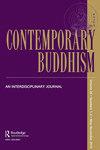Buddhism and Motherhood
IF 0.1
3区 哲学
0 PHILOSOPHY
引用次数: 1
Abstract
Motherhood is a relational concept by its very nature. Biologically, it is tied to the children a woman produces. It is tied to concepts like fertility, pregnancy, abortion, and loss. But motherhood is more than a biological fact. The way motherhood is imagined and interpreted affects women’s direct experiences socially, politically, and medically. When motherhood is limited to a biological fact, it can limit women’s lives. But as this entry will hopefully make clear, motherhood is more than that. It is also a paradigm, a metaphor, even a religious practice. Among the themes highlighted here, we will consider specific mothers first—the Buddha’s two mothers (Māyā and Mahāpajāpatī [Skt. Mahāprajāpatī]), along with other famous mothers in Buddhist narrative (such as the mother of the Buddha’s son). We will consider one of the most important doctrines related to motherhood—namely, that one must love all beings the way a mother loves her only son—and the paradox such a teaching embodies. Pollution is an important challenge presented by motherhood (with the famous Blood Pond Hell that all mothers are destined for), along with filial piety (so that sons might save their mothers instead). Buddhist literature often shatters the concept of motherhood with tales like that of Kisā Gotamī, who only achieves awakening after losing her son, and yet motherhood is also sometimes carried over into discussions of renunciation, as monastics might embody motherhood (or parenthood) despite shaved heads. Some of the themes discussed here appear in other entries of this bibliographic collection, because when we study one piece of a tradition, we inevitably find ourselves studying all of it.佛教与母性
母性本质上是一个关系概念。从生物学上讲,它与女性生育的孩子有关。它与生育、怀孕、堕胎和失去等概念有关。但母性不仅仅是一个生物学事实。想象和解释母性的方式影响着妇女在社会、政治和医学上的直接经历。当母性被局限于一个生物学事实时,它会限制女性的生活。但正如这篇文章希望阐明的那样,母亲的意义远不止于此。它也是一种范式,一种隐喻,甚至是一种宗教实践。在这里强调的主题中,我们将首先考虑具体的母亲——佛陀的两个母亲(Māyā和Mahāpajāpatī)。Mahāprajāpatī]),以及佛教故事中其他著名的母亲(比如佛陀儿子的母亲)。我们将考虑与母性有关的最重要的教义之一,即一个人必须像母亲爱她唯一的儿子那样爱所有的生命,以及这种教义所体现的悖论。污染是母亲提出的一个重要挑战(所有母亲都注定要去著名的血池地狱),以及孝顺(这样儿子可能会拯救他们的母亲)。佛教文学经常用诸如kishi gotami这样的故事来粉碎母性的概念,kishi gotami在失去儿子后才觉醒,然而母性有时也会被带进关于出家的讨论中,因为尽管剃光头,僧侣们可能会体现母性(或父母身份)。这里讨论的一些主题出现在这个书目集的其他条目中,因为当我们研究一个传统的一部分时,我们不可避免地发现自己在研究所有的传统。
本文章由计算机程序翻译,如有差异,请以英文原文为准。
求助全文
约1分钟内获得全文
求助全文

 求助内容:
求助内容: 应助结果提醒方式:
应助结果提醒方式:


